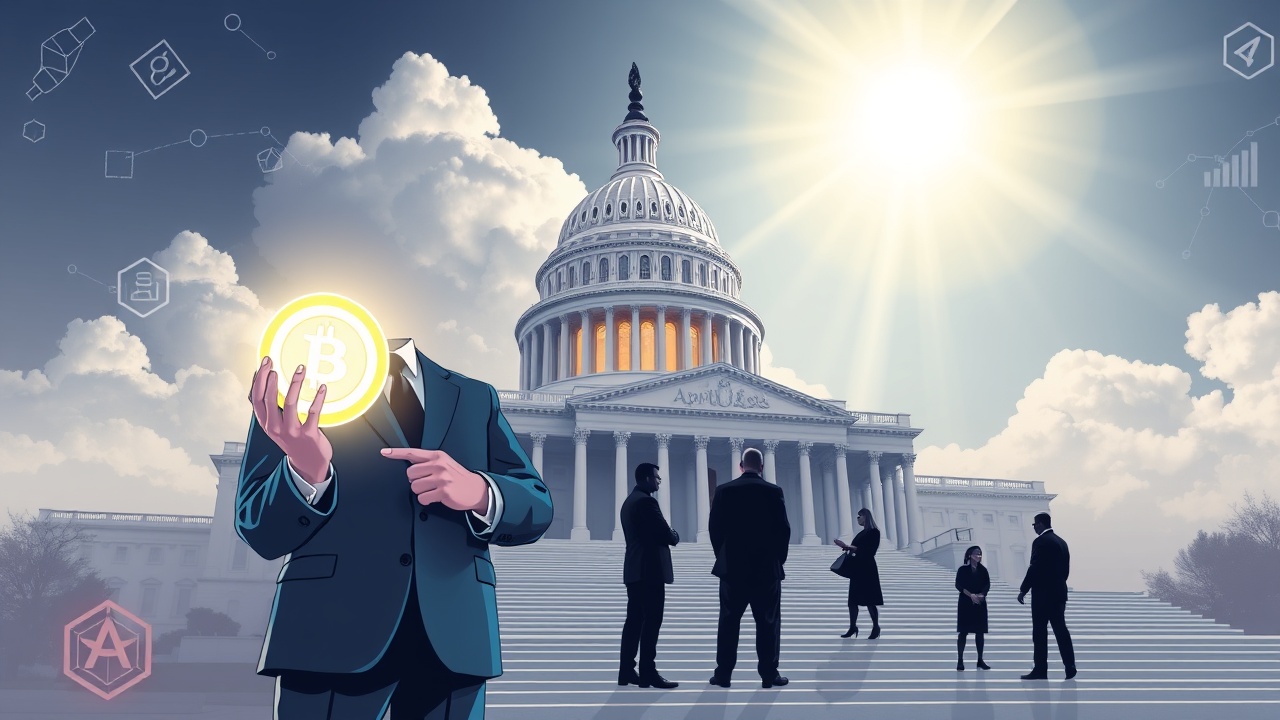Avery Ching’s Congressional Testimony on Digital Assets
Avery Ching, the CEO and Co-founder of Aptos Labs, testified before a U.S. Congressional committee on June 5, addressing the pressing need for a transparent regulatory framework governing the digital asset market. The hearing, titled “American Innovation and the Future of Digital Assets: From Blueprint to Functional Framework,” provided a platform for Ching to articulate the crucial role that clear regulations play in the expansion of blockchain technology and the digital economy in America.
The Role of Blockchain and the Aptos Ecosystem
In his address, Ching emphasized that Aptos, an advanced layer-1 blockchain, is more than just a technological innovation; it is pivotal to the future of secure payments, commerce, and digital identities. Launched in 2021, Aptos Labs was founded with the vision of shaping the next chapter of the Internet through a scalable and secure blockchain infrastructure, which differs fundamentally from traditional centralized networks.
Ching presented the Aptos token (APT) as an essential component of the Aptos ecosystem, highlighting that it serves multiple functions beyond mere speculation. APT is integral for securing the network and recording transactions, with users able to lock tokens (staking) to contribute to network security. Additionally, validators are rewarded with APT for their role in maintaining transaction integrity. APT also facilitates governance, empowering holders to propose and vote on decisions, and it is crucial for managing transaction fees, thereby preventing spam and ensuring operational efficacy.
Real-World Applications of Aptos Technology
More than merely theoretical, Aptos has already attracted over a thousand developers, leading to the creation of hundreds of applications across various sectors, including finance, commerce, and entertainment. Majors in the financial industry, such as BlackRock and Franklin Templeton, have begun launching tokenized products on the Aptos blockchain, paving the way for improved transparency and operational efficiency in trading.
Ching highlighted specific applications utilizing Aptos technology: for instance, the PACT Protocol, which offers on-chain lending services aimed at emerging markets, has issued over $1 billion in loans. Additionally, collaborative initiatives with NBCUniversal focus on enhancing fan experiences through blockchain-enabled loyalty programs and interactive content. Moreover, companies like Jellybean integrate physical goods with blockchain records, fostering deeper consumer trust via transparent supply chain data. These examples underscore the potential for blockchain to revolutionize not just digital interactions but everyday experiences.
Regulatory Necessities and Future Prospects
Towards the end of his testimony, Ching articulated the necessity for guiding regulations for token issuance and distribution, stressing that the lack of clarity has hindered innovation and could drive developers away from the U.S. He urged regulatory bodies to establish consistent rules, which he believes will bolster American leadership in the impending digital economy.
Ching responded to critical questions posed during the hearing, addressing the role of digital assets in enhancing access to financial services, especially in remote areas. He shared insights on how blockchain technology could operate without the Internet, thus broadening its accessibility and impact. The conversation also touched on the pressing need for user privacy in blockchain transactions, recognizing the challenges in balancing transparency with individual privacy rights.
In response to concerns regarding the implications of the recent FTX bankruptcy, Ching pointed out that ambiguities in regulation had significantly contributed to that crisis, reinforcing his argument for clearer legislative frameworks.
A Vision for Blockchain Innovation
The Aptos CEO’s testimony encapsulates a broader ambition: to position blockchain as a foundational layer of the next generation of the Internet. Movemaker, a community organization endorsed by the Aptos Foundation, aims to foster the growth of the Aptos ecosystem, connecting developers, users, and investors while promoting a diverse and collaborative environment. As Aptos continues to expand its impact, the demand for regulatory clarity stands as a critical factor in shaping the future of digital innovation in the United States.




